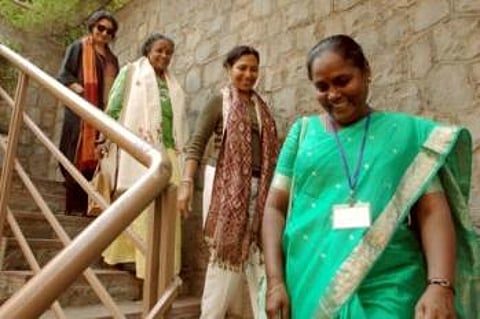Women’s words and worlds
What do women writers talk about? If the South Asian Women Writers' Colloquium held in New Delhi recently is anything to go by, the answer is: everything. The subjects discussed at the 21-23 February meet included revolution and relationships, politics and pain, gender and genocide, markets and mothers, caste and creativity, language and loneliness, form and family, success and struggle, poverty and privilege, roots and rootless-ness.
The colloquium brought together over 40 writers of fiction, poetry and creative non-fiction, as well as journalism and academic writing, in at least 13 languages, from five countries of the region and farther afield. The hybrid event, dubbed "The Power of the Word," addressed concerns about literature and society, globalisation and culture, censorship and human rights. Its main aim was to explore the diverse forms of censorship faced by writers in general, and women writers in particular.

